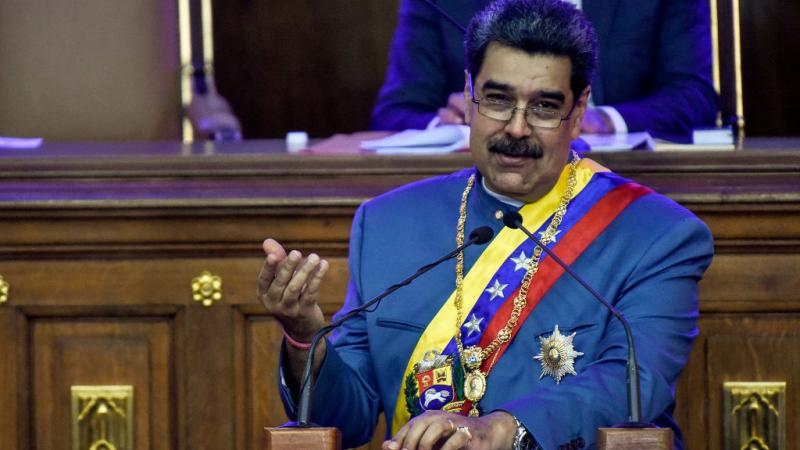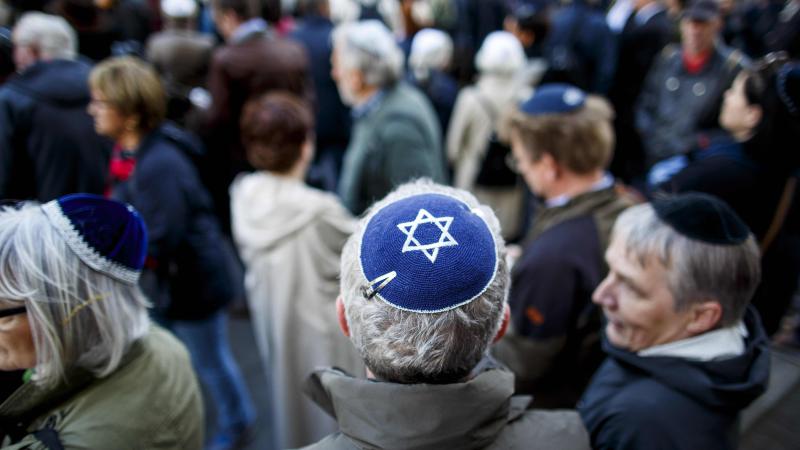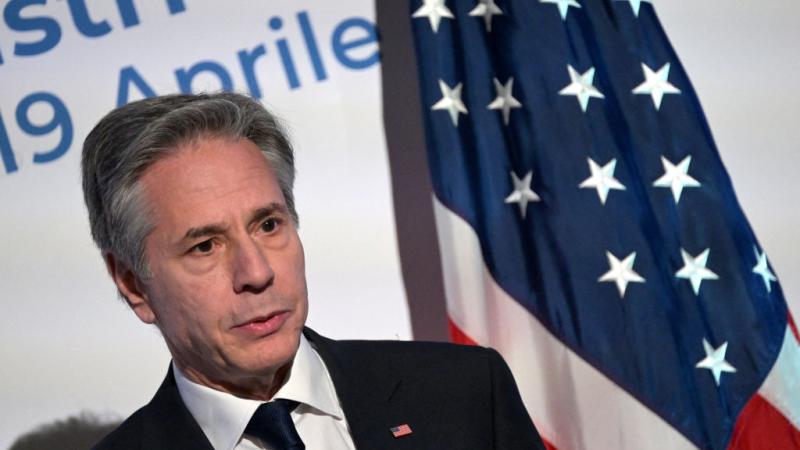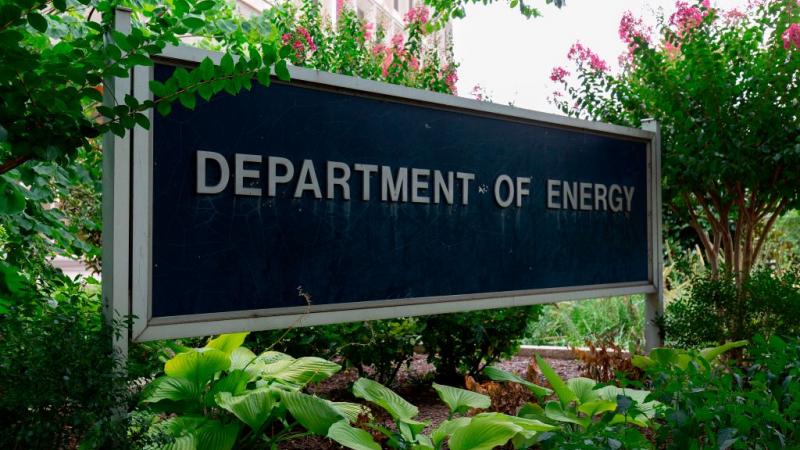After Harris diplomatic flop, red electoral shifts, some see Dem grip on Latino vote slipping
Following a pivot by Hispanic voters away from Democrats in Texas, the vice president met with chilly reception on swing through Guatemala and Mexico.
A widely panned Central American diplomatic tour by Vice President Kamala Harris on the heels of a pivot toward Republicans by Hispanic voters in Texas elections may spell larger problems ahead for Democrats with a constituency central to the party's identity-based rainbow coalition politics.
Harris traveled to Guatemala and Mexico this week to meet with leaders in what was billed as an attempt to confront the root causes of the wave of migrants currently crashing across the U.S. southern border.
The vice president met with a tepid reception in both nations, took political fire for the trip from both left and right domestically, and returned home to a report that the White House was "perplexed" by her rocky debut on the international stage.
This past weekend, Texans elected three Republican mayors in heavily Latino cities, deepening recent GOP inroads among historically Democratic Hispanic voters.
Republican Javier Villalobos was elected in McAllen, Texas, a border city comprised of roughly 85% Latino residents. The significantly Hispanic cities of Fort Worth and Arlington, Texas also elected Republicans, upsetting the narrative that the Lone Star state is inexorably turning blue.
The Rio Grande Valley, where McAllen is located, is densely populated by Hispanics. The former Democratic stronghold has been trending Republican for several elections.
Former President Trump saw significant Latino support in the area during his 2016 campaign, and went on to nearly double his numbers in 2020. Hillary Clinton won the region by 39 points in 2016, while President Biden won it by just 15 last year.
Democrats "have a huge Hispanic problem, and they know it," said former Trump campaign spokesman and current Newsmax host Steve Cortes. "Republicans have a huge Hispanic opportunity, if they can seize it."
Nationwide, Trump support among Latinos rose 8 points in 2020 compared to 2016, with significant gains in Arizona and megastates Florida, New York and Texas.
Cortes cites several reasons Latino voters are gravitating toward Republican candidates: Hispanics' significantly more pro-life leanings than white Americans', the GOP emphasis on education and public safety, and — counterintuitively — Republican messaging on immigration, which demonstrably resonated in McAllen during the weekend's breakout election.
Meanwhile, south of McAllen, in the Northern Triangle, Central American leaders also seem to be displaying a preference for Republican immigration policies over those of the Democrats.
Ahead of the vice president's arrival, Guatemalan President Alejandro Giammattei blamed the Biden administration's policies and rhetoric for the ongoing crisis at the border, specifically the financial windfall it has delivered to coyotes and cartels across his country.
"You could make the argument that President Biden and Vice President Harris are the cartels' best friends, because their incomes just went through the roof," said John Zadrozny, the director of the America First Policy Institute's Center for Homeland Security and Immigration.
Harris was met in Guatemala by protesters with signs reading, "Trump won" and "Kamala, go home." After making it clear that he and Harris "are not on the same side of the coin" on the migration issue, Giammattei further embarrassed the VP when, during their public meeting, he sent her back to her podium and made her put on her mask before proceeding to the photo op.
"I'm honestly not sure why she's there," Zadrozny said in a recent interview with "Just the News AM." "These countries are very intelligent. They know the score ... the Biden/Harris administration sent the signal that illegal immigration was okay, and the cartels swung into action.
"The Mexican government is unhappy about the fact that massive movements through its country have occurred again and caused some damage to their people. It's not just a national security issue for us. It's a national security issue for the entire region, and words have consequences."
Since the opening days of the Biden administration, heads of state in Mexico have expressed concern that the immediate rollback of Trump-era immigration policy was encouraging the record influx of migrants through Mexico to the U.S. southern border.
"They see [Biden] as the migrant president, and so many feel they're going to reach the United States," said Mexican President Andres Manuel Lopez Obrador in March.
Both Lopez Obrador and Giammattei have asked Biden and Harris to help them stem the flow of migrants by clearly communicating that the U.S. border is closed. Despite policy decisions that have signaled a more permissive border stance, the vice president on her trip tried out a firmer message of deterrence to would-be illegal immigrants while promising U.S. assistance to address the ostensible "root causes" of fight from the region, including poverty and insecurity.
"The goal of our work is to help Guatemalans find hope at home," Harris said Monday in Guatemala. "At the same time, I want to be clear to folks in this region who are thinking about making that dangerous trek to the United States-Mexico border, do not come, do not come.
"There are legal methods by which migration can and should occur, but we as one of our priorities will discourage illegal migration, and I believe that if you come to our border you will be turned back."
"The level of disrespect" shown by the Guatemalan leader for Harris's nominally tougher immigration messaging "was palpable because he knew that she was pandering, and he treated her as such," said Citizens United president David Bossie.
"Joe Biden was on the presidential campaign trial telling everyone to come," the Trump political adviser said on the "John Solomon Reports" podcast. "Kamala Harris was telling everybody to come."
Harris announced a motley assortment of measures aimed at curbing illegal immigration, including offering hundreds of thousands of doses of COVID-19 vaccine, providing regional law enforcement training to investigate transnational crime, and a request for $861 million in aid for Central and South America.
In Mexico City on Tuesday, Harris closed her speech by saying that Central Americans need "a sense of hope that help is on the way” to their nations of origin in order to dissuade them from flocking to the U.S.
Notwithstanding her promises of vaccines, police training, foreign aid and "hope," the vice president offered no tightening of U.S. border controls to stem the flow of migrants into the country in the near term.
















